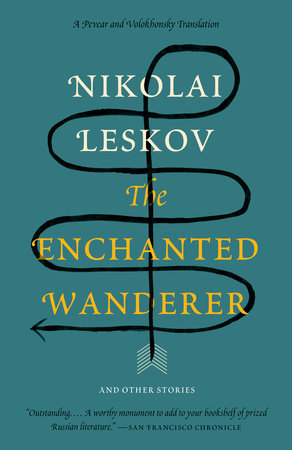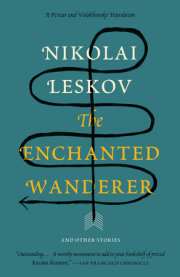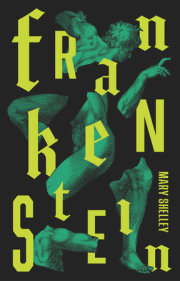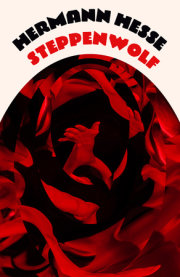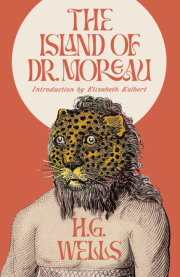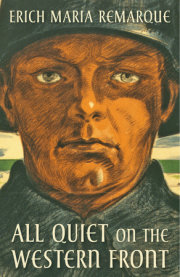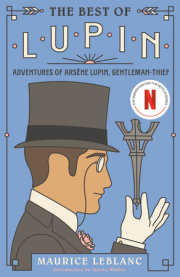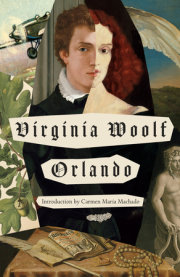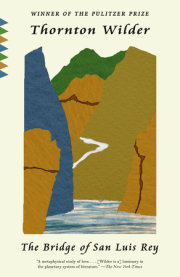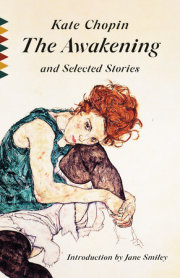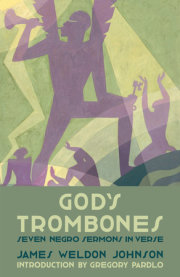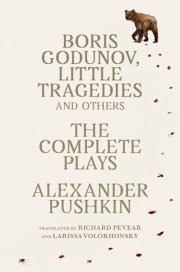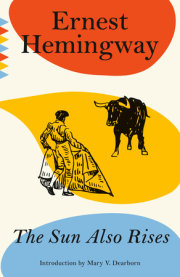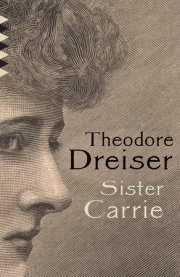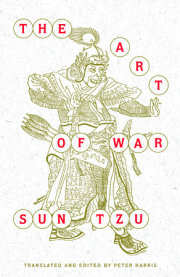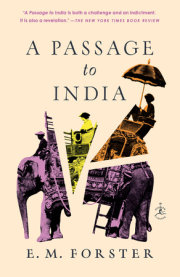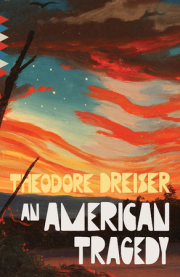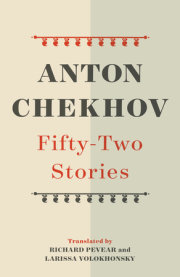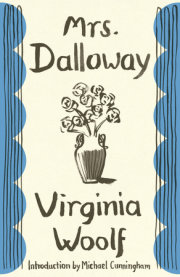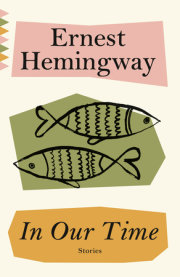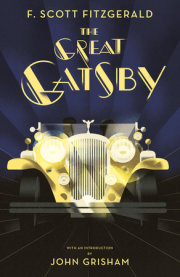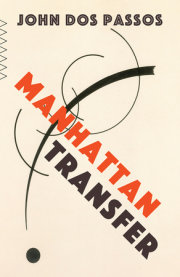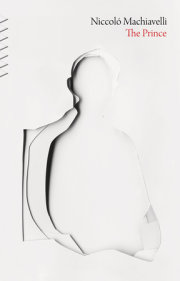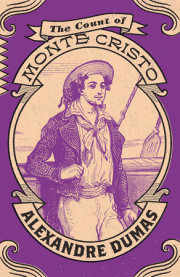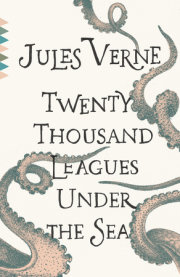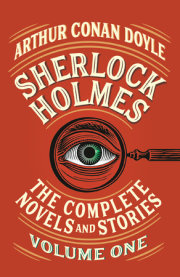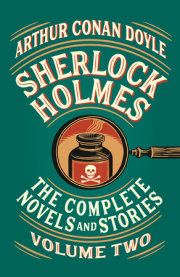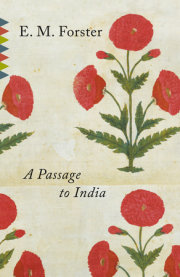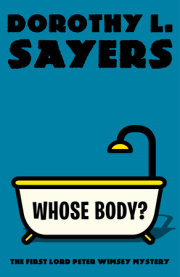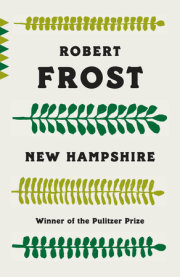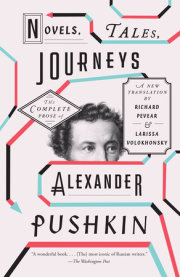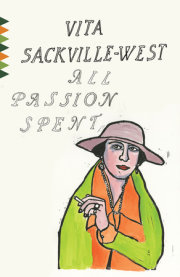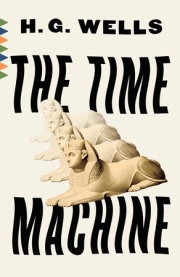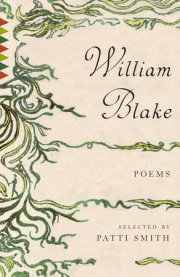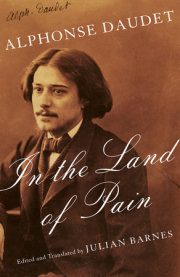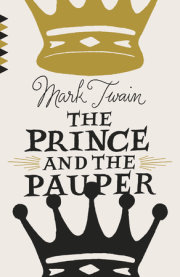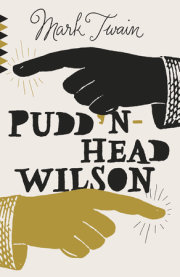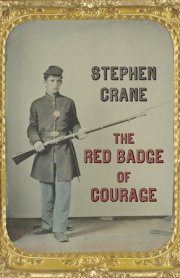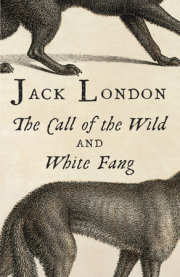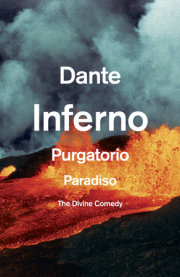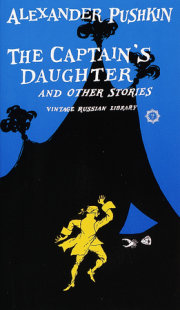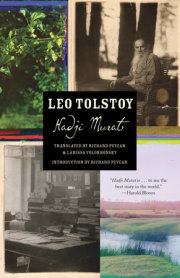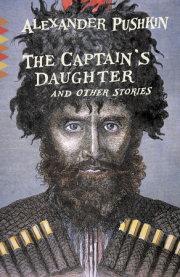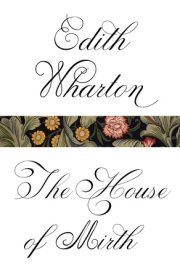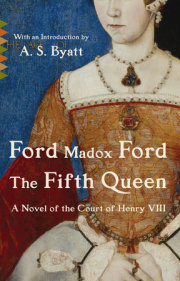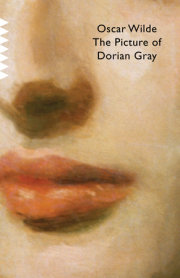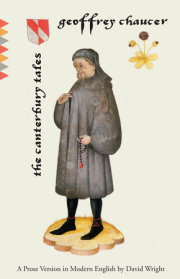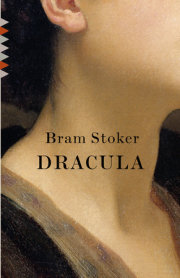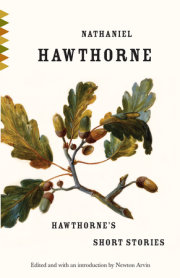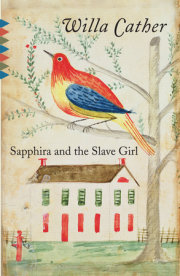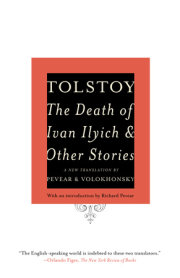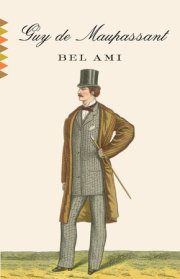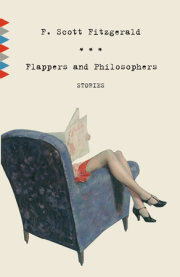Excerpted from the Introduction
Leskov is a writer who yields enormous pleasure, breaking past sectarian literary and ideological premises. But more: we live in a moment of lowered cultural and emotional expectations, after the fall of modernism but with nothing very strong to replace it. To go back to certain earlier writers is to regain a sense of human possibility. To go back to Leskov is to regain a sense of the passion, sometimes the joy, that can be part of the human enterprise. —Irving Howe, “Justice for Leskov”
I.
Nikolai Leskov, a younger contemporary of Dostoevsky and Tolstoy and one of the great masters of Russian fiction, is a writer who keeps being discovered. The first to discover him was Leskov himself. He was in his late twenties and working as a business agent for his uncle, a Russianized Scotsman named Alexander Scott, whose firm managed the vast estates of two noble Russian families. Leskov later described those years, from 1857 to 1859, as the best period of his life. He traveled all over Russia, “from the Black Sea to the White and from Brod to Krasny Yar,” and sent back reports in the form of letters to his uncle. “I had no need to clear myself a path to the people through books and ready-made ideas,” he later wrote. “I studied them in place. Books were a precious help to me, but I was the helmsman. Hence I’m not rooted in any school, because it was not in school that I learned, but on Scott’s barges.” These travels gave him a great store of impressions that he drew upon all his life.
Scott was struck by the literary quality of Leskov’s reports and used to read them aloud to his neighbors, one of whom praised them so highly that it gave Leskov the idea of becoming a writer. As he commented rather drily in a third-person “Note on Himself” thirty years later: “His writing began by chance.”
He was born in the village of Gorokhovo, near the town of Orel (pronounced “Oryól”), in 1831. Orel, located in the Russian heartland, the so-called “wooden Russia,” some two hundred and twenty miles southwest of Moscow, is the setting of five of the seventeen stories in the present collection. Another is set in Mtsensk, which is in the Orel region, and five more take place in other provincial Russian towns. This preponderance of the provincial is typical of Leskov’s work as a whole, though, as the reader will see, he could also tell sophisticated and witty stories set in Petersburg, Moscow, Vienna . . .
On his father’s side, Leskov came from several generations of priests serving the village of Leski, which gave them their family name. His father, too, received a seminary education, but he broke with tradition and entered government service in the Orel courts, eventually attaining the rank of collegiate assessor, which conferred hereditary nobility. His mother was from an impoverished aristocratic family: her father, a Moscow nobleman who had lost everything during the French invasion in 1812, worked as an estate manager in Gorokhovo; her mother, of whom Leskov gives us a fine portrait in the last chapter of “Deathless Golovan,” was of Moscow merchant stock and, as Leskov says, “was taken in marriage into a noble family ‘not for her wealth, but for her beauty.’ ” Leskov thus combined in himself the three estates—noble, mercantile, and clerical—but in oddly mixed and attenuated forms.
He first came to know the fourth estate, the peasants (serfs at that time), in 1839, when his father gave up his position as a magistrate in Orel and bought the small country estate of Panino, in the Kromy district, twenty miles from Orel. This move and some of the experiences it led to are described in the opening chapters of his story “The Spook.” The knowledge of peasant life he acquired then, later enriched by his travels for Alexander Scott, differed greatly from the abstractions of radical social theory that were becoming fashionable in Moscow and Petersburg.
Leskov’s formal schooling was limited to the five years, from 1841 to 1846, he spent at the secondary school in Orel. He later wrote that he was “terribly bored but studied well,” but in fact he was a mediocre student, and at the age of fifteen he left school without finishing and went into civil service as a clerk in the Orel criminal court. In 1848 his father died during an outbreak of cholera, leaving his mother to manage the little estate at Panino and raise seven children, of whom he was the eldest. In 1849 his maternal uncle, Sergei Petrovich Alferiev, a doctor in Kiev and a professor at the university, invited him to visit. Leskov was greatly impressed by the city and decided to stay. He took a leave from his post in Orel and by February of 1850 had been accepted as a junior clerk in the Kiev military recruitment office. This close experience of the workings of Russian bureaucracy and of the fate of conscripts (the term of military service at that time was twenty-five years) would reappear again and again in his writing.
Leskov spent eight years in Kiev, made friends with students and professors at the university through his uncle, sat in on courses, read widely, learned Ukrainian and Polish, and incidentally witnessed the building of the famous Nikolaevsky Chain Bridge over the Dniepr River, designed by the Anglo-Irish engineer Charles Blacker Vignoles. This was the first multi-span suspension bridge in Europe and at the time the longest in the world. The workers and the work on the bridge have a central place in his story “The Sealed Angel” (1873), and though he deliberately avoids naming the city, the setting is vividly evoked. The directors of the actual project were English, as in Leskov, and Vignoles’s letters and papers (which, of course, Leskov never saw) describe the same natural disasters, the floods and ice damage, that play such a major part in the story. In 1853, the year that the bridge was officially opened, Leskov married Olga Smirnova, the daughter of a Kiev merchant.
The suffering and the corruption Leskov witnessed daily in the system of military conscription under the emperor Nicholas I were counterbalanced by the intellectual breadth and moral idealism he met with in the people of his uncle’s circle. He was profoundly influenced by a number of them, in particular by a man he refers to in an autobiographical note as “the well-known statistician-abolitionist Dmitri Petrovich Zhuravsky.” Zhuravsky (1810–1856) was an economist who not only advocated the abolition of serfdom in theory but also practiced it in reality, buying out house serfs and setting them free. At his death, he left his small inheritance for the continuation of that practice. Writing to his friend the Slavophile publicist Ivan Aksakov on December 2, 1874, Leskov said of Zhuravsky: “he was all but the first living person who, in the days of my youth in Kiev, made me understand that virtue exists not only in abstractions.”
Another of his Kievan acquaintances, and one closer to him in age, had an even stronger influence on the young Leskov. This was Stepan Stepanovich Gromeka (1823–1877), a nobleman from Poltava who was attached to the governor-general’s staff when they met in 1852. Gromeka had a rather strange career. Politically he began as a liberal, advocating reform rather than revolution. He defended the monarchy while hoping to improve it. In 1857–1858 he published a series of satirical articles on the police in the prominent Moscow journal The Russian Messenger. He also contributed to the liberal Petersburg monthly Notes of the Fatherland, and to the radical journal The Bell, edited in London by the expatriate Alexander Herzen. But his journalistic career was confined to some five or six years. By 1862 he had turned against Herzen, and in the later 1860s he went back into government service, ending as governor of Siedlce province in Russian Poland, where he campaigned for the absorption of the Uniate (Eastern Roman Catholic) Church into the Russian Orthodox Church and was notorious for his brutal treatment of peasants who resisted.
Leskov followed a very different path from Gromeka’s, but in his “Note on Himself” he acknowledged that their friendship during his years in Kiev “had a decisive influence on Leskov’s subsequent destiny. The example of Gromeka, who abandoned his government service and went to work for the Russian Society of Shipping and Trade, induced Leskov to do the same.” So it was that Leskov left his position in the recruiting office and went to work for Alexander Scott. But in 1860 Scott’s firm suffered reverses and he could no longer keep his nephew employed. Leskov returned to Kiev, and here the influence of Gromeka again proved crucial. Gromeka had preceded Leskov into business; he had also preceded him into journalism. In the early 1860s it was Gromeka who connected Leskov with such prominent Moscow and Petersburg editors as Mikhail Katkov of The Russian Messenger, Stepan Dudyshkin and Andrei Kraevsky of Notes of the Fatherland, Mikhail and Fyodor Dostoevsky of Time and Epoch (“The Lady Macbeth of Mtsensk” was first published in Epoch in 1865). In the same “Note on Himself,” he confessed that “Leskov’s decisive enslavement to literature was again the work of that same Gromeka. He has been writing ever since.”
Leskov’s earliest article, “Sketches of the Distilling Industry (Penza Province),” was published in April 1861 in Notes of the Fatherland. By then the thirty-year-old author had moved to Petersburg himself. It was his first taste of life in the capital, and it was a heady moment for Russian society. In 1855 the repressive emperor Nicholas I had died and his son, Alexander II (1818–1881), had taken the throne. In March 1861, Alexander II released a manifesto proclaiming the emancipation of the serfs, for which he became known as the “tsar-liberator.” In 1864 came a far-reaching judicial reform, for the first time establishing open courts, trial by jury, and a bar association. There were also military reforms shortening the length of service and eliminating corporal punishment, among other things. But this was also the time of the nihilists, the so-called “new people,” who were not satisfied with Alexander’s reforms or with liberalism in general and called for far more radical changes. The term “nihilist” first entered Russian literature in a novel by another writer from Orel—Ivan Turgenev. In his Fathers and Sons, published in 1862, it is applied to Evgeny Bazarov, whom Turgenev conceived as “a new type of hero.” Arkady Kirsanov, a close friend of Bazarov, explains the meaning of the term to his father: “A nihilist is a man who does not bow down before any authority, who does not take any principle on faith, whatever reverence that principle may be enshrined in.” The radical journalist Dmitri Pisarev (1840–1868) put it more bluntly: “Whatever can be smashed, must be smashed.” It was a time of fierce polemics, clandestine publications, the first experiments with communes, and also of several attempts to assassinate the tsar-liberator, the last of which, in March 1881, was successful.
With his move to Petersburg, Leskov was caught up in the contradictions of the time, and as a journalist he quickly found himself embroiled in them. Writing about “Leskov’s Literary Beginnings,” the French scholar Jean-Claude Marcadé observed: “Leskov’s articles are interesting because they show the same temperament in the publicist as would be that of the writer throughout his career. It was impossible for him to compose accommodating works, to hide the truth as he felt it.”* Near the end of his life, in an interview with V. V. Protopopov, Leskov said of himself:
I love literature as a means enabling me to express what I hold to be true and good. If I cannot do that, literature is of no value to me: looking upon it as art is not my point of view. I absolutely cannot understand the concept of “art for art’s sake.” No, art must be useful. Only then does it have a precise meaning. I do not acknowledge the art of painting naked women. It is the same for literature. If one cannot serve the true and the good by means of art, it is useless to write, and one ought to abandon the occupation.* He was a prolific journalist and remained one all his life, producing over six hundred articles in all. But in 1862 he also published his first fiction in The Northern Bee, which, in tune with the times, had turned from a reactionary to a liberal journal.
The progressives were divided into two camps, the “gradualist” and the “impatient.” Leskov remained with the gradualists, he said, because he found their moderation more trustworthy. Besides, he was somewhat older than most of the “new people” and had behind him a much deeper and more varied experience of Russian realities. But he had a number of good friends among the “impatient,” and when student unrest broke out in Petersburg and then in Moscow in 1861–62, he sympathized with their cause. From them he arrived at the notion, to be embodied in his polemical novel No Way Out (1864), that there were good nihilists and bad nihilists, and that the good would soon distinguish themselves from the “nihilizing babblers.”
In Moscow, on May 18, 1862, a clandestine proclamation entitled “Young Russia” appeared, calling upon the radical youth to “pick up their axes” and “strike the imperial party” wherever it might be—“in the public squares . . . the streets, the fields, the villages”—and with each blow to cry: “Long live the social and democratic Republic of Russia!” The “imperial party” meant not only the emperor and his family, but the nobility, the merchants, the functionaries, the landowners—they were all to be included in the bloodbath. Copies of the proclamation were handed out in the streets and courtyards, sent by mail, stuffed into coat pockets, distributed in churches, pasted up on walls. It caused great alarm among the inhabitants of both capitals, and all sorts of rumors began to spread. In the midst of that agitation, towards the end of May, a series of fires broke out in Petersburg. The conservatives immediately blamed them on the students and revolutionaries. The progressives countered by saying they had been set by the police as a provocation. (Some also suggested they were simply the work of property owners who wanted to collect on their insurance. To this day, in fact, no one knows whether the fires were deliberate or accidental.) The fire in the Apraksin and Shchukin markets on May 28 caused the greatest panic and destruction. Two days later Leskov published an editorial in The Northern Bee responding to the rumors about arson, noting that “the public also points to what sort of people the incendiaries are, and hatred of that sort of people [he carefully avoids mentioning students] is growing with unheard-of speed.” He voiced his concern about the danger “the members of that body” might face as a result of the rumors. He did not presume to judge how well-founded the suspicions were and to what extent they might be connected to “the latest abominable and revolting proclamation calling for the overthrow of the entire civil order of our society.” But to avoid worse disorders, he called on the police to make public at once all the solid information they had. “They should boldly say whether the rumors circulating in the capital about the fires and the incendiaries have the least substance. The ignoble villains must not be spared; but neither is it fitting to risk a single hair on a single head living in the capital and exposed to the accusations of a totally frightened population.”
The editorial is somewhat awkwardly worded, but it is clear that Leskov wanted to get at the truth, so that the rumors would not continue to grow and threaten innocent people. He did not believe the students were responsible for the fires. He condemned the “Young Russia” proclamation in the strongest terms and meant to separate it from the majority of the students, but to the minds of the radicals, he was in fact connecting them with the fires and even inciting the police against them. The violence of their reaction astonished Leskov and wounded him deeply. He was accused of being a government agent and, worse than that, a turncoat. Dmitri Pisarev, the spokesman of the nihilists, anathematized him, calling him both reactionary and dishonest, and virtually banned him from the pages of the liberal press. What was more, the emperor was also said to be displeased with the editorial. Though he never recanted, and in fact had nothing to recant, Leskov’s attempts to explain himself in subsequent articles only made matters worse both on the right and on the left. He even received death threats. On September 6, 1862, to escape the turmoil and clear his head, Leskov went abroad as foreign correspondent for The Northern Bee. Choosing to travel by stage-coach rather than train,* he passed through the Ukraine, Poland, Bohemia, and finally settled in Paris, where he spent four months, returning to Russia only the next March.
Among the liberal intelligentsia Leskov bore the totally misplaced stigma of a reactionary all his life, and it lingered on into Soviet times. In a letter to his friend Pyotr Shchebalsky dated November 10, 1875, he mimicked the general editorial opinion of him: “He has marked himself off so clearly . . . and besides they say he’s close to the Third Section” (i.e., the secret police). A reviewer who praised the language of “The Sealed Angel” in 1873 added, “Leskov has such a reputation that it takes a sort of audacity to praise him.” As a result, though he always had readers, more and more of them as time went on, he suffered during his lifetime from an almost total critical neglect. Even his admirers among the critics were reluctant to write about him because of the suspicions he aroused. He was considered a minor writer, and the great originality of his work was overlooked. He remained, in that sense, undiscovered.
In the 1880s that situation began to change. A younger generation of writers, artists, and thinkers, who had themselves rejected the violent and doctrinaire judgments of nihilism, turned to Leskov as a master. This was his second discovery. In 1881 the new weekly humor magazine Fragments published Leskov’s story “The Spirit of Madame de Genlis.” Two years later the same magazine published “A Little Mistake.” Meanwhile, the stories of the young Anton Chekhov had begun to appear there. Chekhov was in medical school and earned his living by placing comic sketches wherever he could (Fragments published two hundred and seventy of them between 1882 and 1887). In 1883 he met Leskov in Moscow. “Leikin brought along with him my favorite writer, the famous N. S. Leskov,” he wrote in a letter to his brother. He was twenty-three, Leskov fifty-two. After a night of carousing, they wound up in a cab together. “Leskov turns to me half-drunk,” Chekhov wrote in the same letter, “and asks: ‘Do you know what I am?’ ‘I do.’ ‘No, you don’t. I’m a mystic.’ ‘I know.’ He stares at me with his old man’s popping eyes and prophesies: ‘You will die before your brother.’ ‘Maybe so.’ ‘I shall anoint you with oil as Samuel did David . . . Write.’ The man is a mixture of an elegant Frenchman and a defrocked priest. But he’s considerable.” Chekhov took this consecration by Leskov more seriously than it sounds. And in fact they had much in common: they shared a broad experience of Russia and Russian life and an unidealized knowledge of the people. And something more important as well. In his biography of Chekhov,* Donald Rayfield speaks of “a mystic side of Chekhov—his irrational intuition that there is meaning and beauty in the cosmos,” which “aligns him more to Leskov than to Tolstoy in the Russian literary tradition.”
Another new discoverer of Leskov was the painter Ilya Repin (1844–1930), one of the major Russian artists of the later nineteenth century. He had met Leskov and had illustrated some of his stories. In September 1888, in a letter asking permission (unsuccessfully) to paint Leskov’s portrait, he wrote: “Not only I but the whole of educated Russia knows you and loves you as a very outstanding writer of unquestionable merits, and at the same time as a thinking man.” The poet and philosopher Vladimir Soloviev (1853–1900), a central intellectual figure then and now, also championed Leskov’s work. They became personal friends in 1891 and met frequently. Soloviev hand-carried the manuscript of Leskov’s novella “Night Owls” to M. M. Stasyulevich, editor of the liberal, pro-Western Messenger of Europe, who had declared once that Leskov was “someone I will never publish,” and persuaded him to change his mind. When Leskov died in February 1895, Soloviev published an obituary notice:
In his will, Leskov wrote: “I know there was much bad in me; I deserve no praise and no pity. As for those who want to blame me, they should know that I have already done so myself.” But it is impossible to fulfill such wishes when it is a question of such a remarkable man. Therefore I will conform myself to the spirit rather than the letter of this will, and allow myself to express in a few words what I think of the person of the dead man and of his work. What was striking above all in Nikolai Semyonovich was his passionate nature; at an advanced age, and though seemingly inactive, he was still prey to a constant seething of the soul. He needed a quite uncommon spiritual force to keep his ardent character within bounds. Besides, in his works one felt a passionate and restless attitude towards the things he described, which, if his talent had been less, might have turned into an obvious partiality. But in Leskov, as in every great writer, that passion is tempered and betrays itself only secretly, though here and there in his writings there still remains some trace of ideological engagement . . . It is likely that Leskov’s compositions will elicit critical judgments as serious as they are profound; and then, despite what is written in his will, the late writer will become the object of much praise and much blame. But they will all certainly acknowledge in him the brilliance and extraordinary originality of a talent that never remained buried, like the keen yearning for the truth that ruled his being and his work.
Copyright © 2014 by Nikolai Leskov Translated by Richard Pevear and Larissa Volokhonsky. All rights reserved. No part of this excerpt may be reproduced or reprinted without permission in writing from the publisher.

